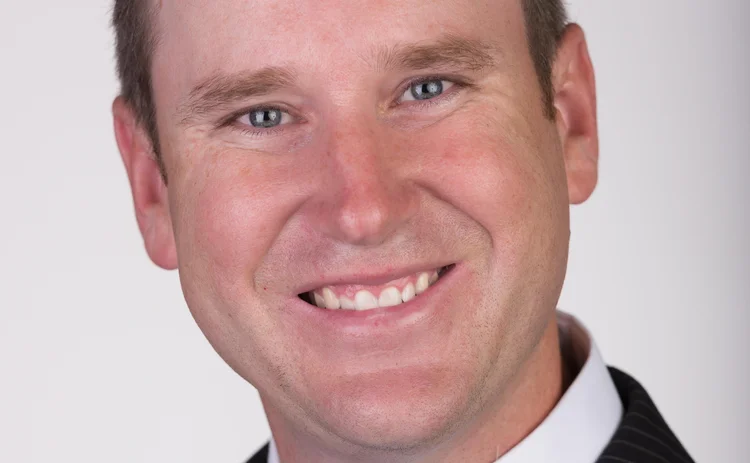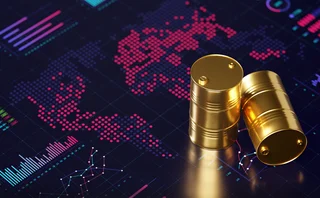
Emissions house of the year: Emission Advisors

Mike Taylor has, literally, written the book on environmental trading. Reduce carbon compliance costs: strategies for California and Quebec facilities to reduce their compliance costs in the Carbon Cap and Trade Program may not have the snappiest title, but it distils some two decades of trading experience in US emissions markets.
The book is unique, says the founder of Houston-based broker and consultancy Emissions Advisors, in that it sets out trading and hedging strategies that were hitherto held closely by the handful of energy trading shops active in US emissions markets, such as his former employer Louis Dreyfus – where Taylor ran the emissions trading desk – and NRG Energy, where he was responsible for environmental markets compliance for a 20-gigawatt power generation fleet.
However, with his new business, Taylor is no longer looking to beat the market, but educate it. “We identified a gap,” he says. With most emissions brokers focused on volume business, and energy sector asset management companies tending to deliver little more than bare-minimum emissions compliance, he spotted an opportunity to bring his emissions trading skills to bear helping firms without dedicated emission desks.
“There wasn’t really anyone with knowledge and experience of working at the sophisticated trading houses and large compliance entities who had become consultants and said, ‘we’ll let you in on all the expert strategies that you learn from being in environmental markets for 20 years.”
The company’s client base is composed of companies captured within emissions compliance regimes, but without the internal capacity to easily participate in environmental markets, says Taylor. “There are lots of small oil and gas or cement companies that don’t have a trading floor, or any environmental credit trading expertise or knowledge. For significantly less than the cost of a full-time employee, we can become their outsourced environmental markets expert,” he says.
There are lots of small oil and gas or cement companies that don’t have a trading floor, or any environmental credit trading expertise or knowledge. For significantly less than the cost of a full-time employee, we can become their outsourced environmental markets expert
Mike Taylor, Emission Advisors
Such expertise can save client companies a lot of money. One industrial client was planning a $100 million-plus investment in the Houston area that would require more than $5 million worth of volatile organic compound emissions credits. However, Taylor knew that reducing local nitrogen oxide (NOx) emissions would have a greater impact on the area’s air quality – for a considerably lower cost. “We hired a third-party air modeller … to demonstrate that offsetting VOCs with NOX credits is better for the air,” and took the project to the Texas Commission on Environmental Quality, and then on to the federal Environmental Protection Agency.
The process involved lining up the NOx emission reduction credit purchases in advance but, because of the chance that either the TECQ or the EPA could reject the proposal, the contracts were structured as contingent forwards, says Taylor. “It was a big win for the buyer,” he says, saving it around 40% of its expected compliance costs.
A big part of the job, Taylor says, is educating clients about environmental markets; helping them graduate from meeting their immediate compliance obligations to hedging three or four years into the future.
“As our clients get more sophisticated, I’m able to introduce and implement more complex hedging strategies,” he says. “For those companies that can [buy carbon allowances] below the future auction floor price, when you know the floor will go up by [inflation] plus 5% every year, there’s easy savings to be had.”
As an example, he cites a simple strategy in 2018 in the California carbon market involving buying forward at a 4% discount to the next year’s auction floor price, taking advantage of the low cost of capital enjoyed by the big trading houses, and locking in an essentially risk-free return. “Pretty much the only risk is that the entire programme is unwound,” he says.
However, this education process can cost him business. “It can be a little bittersweet when you get the call that says: ‘Hey, I think we’ve got this, we’re good for the next three years. We’ll call you back when we need to worry about the next phase’,” he says.
However, the constant process of mergers, acquisitions and spinoffs, and the turnover of staff continues to create opportunities for his business, and there is also an expectation that – notwithstanding any standstill at the federal level – more US states will turn to markets to help cost-effectively reduce environmental impacts. Taylor cites Oregon, for example, where the state legislature is mulling a bill that would introduce an economy-wide cap-and-trade programme for greenhouse gas emissions.
Existing markets, too, are constantly subject to regulatory review, which can upend hedging programmes and create trading opportunities. “It’s the great thing about environmental markets,” he says. “Regulators can tweak the market with the stroke of a pen, and its dynamics can change overnight. There are always new strategies to be put on.”
Only users who have a paid subscription or are part of a corporate subscription are able to print or copy content.
To access these options, along with all other subscription benefits, please contact info@risk.net or view our subscription options here: http://subscriptions.risk.net/subscribe
You are currently unable to print this content. Please contact info@risk.net to find out more.
You are currently unable to copy this content. Please contact info@risk.net to find out more.
Copyright Infopro Digital Limited. All rights reserved.
As outlined in our terms and conditions, https://www.infopro-digital.com/terms-and-conditions/subscriptions/ (point 2.4), printing is limited to a single copy.
If you would like to purchase additional rights please email info@risk.net
Copyright Infopro Digital Limited. All rights reserved.
You may share this content using our article tools. As outlined in our terms and conditions, https://www.infopro-digital.com/terms-and-conditions/subscriptions/ (clause 2.4), an Authorised User may only make one copy of the materials for their own personal use. You must also comply with the restrictions in clause 2.5.
If you would like to purchase additional rights please email info@risk.net
More on Commodities
Energy Risk Asia Awards 2024: The winners
Winning firms adapt to change with exemplary risk management skills
Foreign funds are bulls in China’s onshore commodity futures
Growing participation from overseas investors is boosting liquidity in what’s already a boom market
Energy Risk Software Rankings 2024: IT demands increase amid rising risk
Heightened geopolitical and credit risk increase requirements on commodities software
Energy Risk Asia Awards 2023: The winners
Winning firms demonstrate resilience and robust risk management amid testing times
ION Commodities: addressing the market’s recent pain points
Energy Risk Software Rankings winner’s interview: ION Commodities
Energy Risk Commodity Rankings 2023: adapting to new market dynamics
Winners of the 2023 Commodity Rankings provided reliability when clients faced extreme change
Energy Risk Software Rankings 2023: managing uncertainty
Unpredictable markets make CTRM software choices key
Navigating the volatility and complexity of commodity markets
Commodity markets have experienced significant challenges since the Covid-19 pandemic, the conflict in Ukraine and the subsequent sanctions imposed on Russia. These unprecedented events have caused fluctuations in supply and demand, disrupted global…







